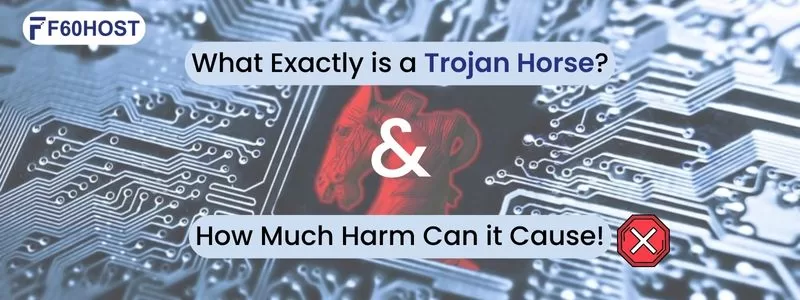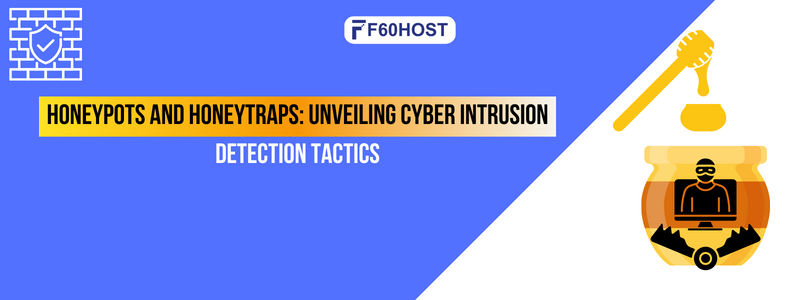What Exactly is a Trojan Horse, and How Much Harm Can it Cause?
A Trojan horse is a type of malware that is disguised as a legitimate file or program. Once the Trojan horse is executed, it can then install other malware on the computer, steal data, or take other harmful actions. Trojans are often spread through email attachments, malicious websites, or file sharing networks.

It was too late when the horse’s belly opened at night. The Greeks had finally captured the long-besieged city of Troy, effectively ending the Trojan War. Thousands of years later, the myth of the Trojan horse persists, but with a negative connotation. For what was once hailed as a great trick and a masterful feat of engineering is today seen as a malignant digital insect whose single purpose is to wreak havoc on the machines of its victims unnoticed. It accomplishes this by reading passwords, capturing keyboard strokes, or opening the way for more spyware that can even take over the entire machine. Among these actions are:
- Deleting data
- Blocking data
- Modifying data
- Copying data
- Disrupting the performance of computers or computer network
Types of Trojan Horse
Backdoor Trojans
Trojan Horse are one of the most basic, yet potentially hazardous, varieties of Trojans. This is because, in their capacity as a gateway, they can either load malware onto your system or make your computer exposed to assault. Botnets are frequently set up using a backdoor. Without your awareness, your computer joins a zombie network used for assaults. Backdoors can also run programmes and commands on your device or monitor your web activity.
Exploit
Exploits are programmes that contain data or code that exploits a vulnerability in a computer application.
Rootkit
Rootkits are programmes that are designed to hide specific items or activities in your system. Their primary goal is frequently to prevent harmful programmes from being identified in order to lengthen the time that the programmes can run on an infected computer.
Dropper/downloader Trojan Horse
The Emotet malware, which has since been rendered harmless but, unlike a backdoor Trojan, cannot execute any code on the PC itself, is one of the most well-known dropper Trojans. Instead, it spreads other infections, such as the banking Trojan Trickbot and the ransomware Ryuk. Droppers are so identical to downloader Trojans, with the exception that downloaders require a network resource to extract malware from the network. The other harmful components in the programme bundle are already included in the droppers.
Banking Trojan Horse
Banking Trojans are among the most common types of Trojans. Given the growing use of online banking, as well as the negligence of some users, it is no surprise that they offer a viable means for attackers to obtain funds rapidly. Their purpose is to gain bank account login credentials.
Fake antivirus Trojan Horse
Antivirus forgery Trojans are very cunning. Instead of safeguarding, they cause serious issues for all devices. With supposed virus discoveries, they hope to frighten unwary consumers and urge them to pay a price for effective protection. Instead of a useful virus scanner, the user only gets more troubles because their payment information is sent to the Trojan’s creator for future misuse. So, if you get a malware alert in your browser when visiting a website, ignore it and only trust your system’s virus scanner.
Trojan-GameThief
This type of programme takes user account information from online gamers.
Trojan-IM (Instant Messaging)
Trojan-IM malware steal your passwords and login information for instant messaging services such as ICQ, MSN Messenger, AOL Instant Messenger, Yahoo Pager, Skype, and others. One could argue that these messengers are no longer in use. Even new communication services, however, are vulnerable to Trojans. Trojans may attack Facebook Messenger, WhatsApp, Telegram, or Signal. A Windows Trojan was commandeered via a Telegram chat as recently as December 2020. In addition, instant messaging should be secured against harmful phishing attempts.
Kaspersky security experts detected a Trojan dubbed Skygofree in January 2018. The malware has incredibly advanced capabilities, such as the ability to connect to Wi-Fi networks on its own, even if the user has disabled the capability on their device.
Trojan-Ransom
This sort of Trojan can alter data on your computer, causing it to malfunction or preventing you from accessing specific files. After you have paid the ransom, the thief will only restore your computer’s performance or unblock your data.
SMS Trojans
They may appear to be relics from another century, yet they are still active and constitute a serious threat. SMS Trojans, such as the Android virus Faketoken, can operate in a variety of ways. Faketoken, for example, sends mass SMS messages to expensive overseas lines while masquerading as a typical SMS app in the system. The costs must be borne by the owner of the smartphone. Other SMS Trojans create links to costly premium SMS services.
Trojan-Spy
Trojan-Spy malware can watch how you use your computer, for example, by tracking the data you type into the keyboard, capturing screenshots, or acquiring a list of apps that are running.
Trojan-Mailfinder
These programs can harvest email addresses from your computer.
There are several other varieties of Trojans:
- Trojan-ArcBomb
- Trojan-Clicker
- Trojan-Notifier
- Trojan-Proxy
- Trojan-PSW
Be careful when surfing the web
The Trojans named here are the most well-known. They all have one thing in common: they can only get into the final device with the user’s cooperation. However, if you use caution when surfing the web, do not open email attachments without thinking, and only download programmes from trusted sources, you should be able to avoid these hazards. An up-to-date operating system and a virus scanner that is always on will protect you even more from Trojans.
How To be save to Trojan horse Virus
Trojan horses are a serious threat to computer security. They can be used to steal personal information, financial data, or other sensitive information. They can also be used to damage or destroy computers. It is important to be aware of the dangers of Trojan horses and to take steps to protect your computer from them.
Here are some tips for protecting your computer from Trojan horses:
- Be careful about what email attachments you open.
- Only download files from trusted sources.
- Keep your software up to date.
- Use a firewall and antivirus software.
- Be careful about what websites you visit and what links you click on.
What is Cloaking in SEO? How to Avoid It
What is Keyword Cannibalization and How to Fix it?
Follow us On LinkedIn



